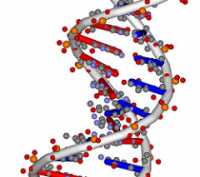Author Interviews / 11.05.2020
Personalized Medicine: Caris Life Sciences Offers DNA and RNA Cancer Profiling
MedicalResearch.com Interview with:
David Spetzler, M.S., Ph.D., M.B.A.
President and Chief Scientific Officer
Caris Life Sciences
MedicalResearch.com: What is the background for this announcement (WES)?
Response: The announcement is about the launch of Caris’ latest molecular profiling test, called MI ExomeTM. MI Exome a next-generation sequencing-based assay analyzing the whole exome of 22,000 DNA genes. It is unique in that it will be run on every patient and will deliver unprecedented detail into the genomic characteristics of cancers, which will greatly improve our ability to understand cancer and provide insights needed to help physicians and patients make more informed treatment decisions that improve outcomes. (more…)










